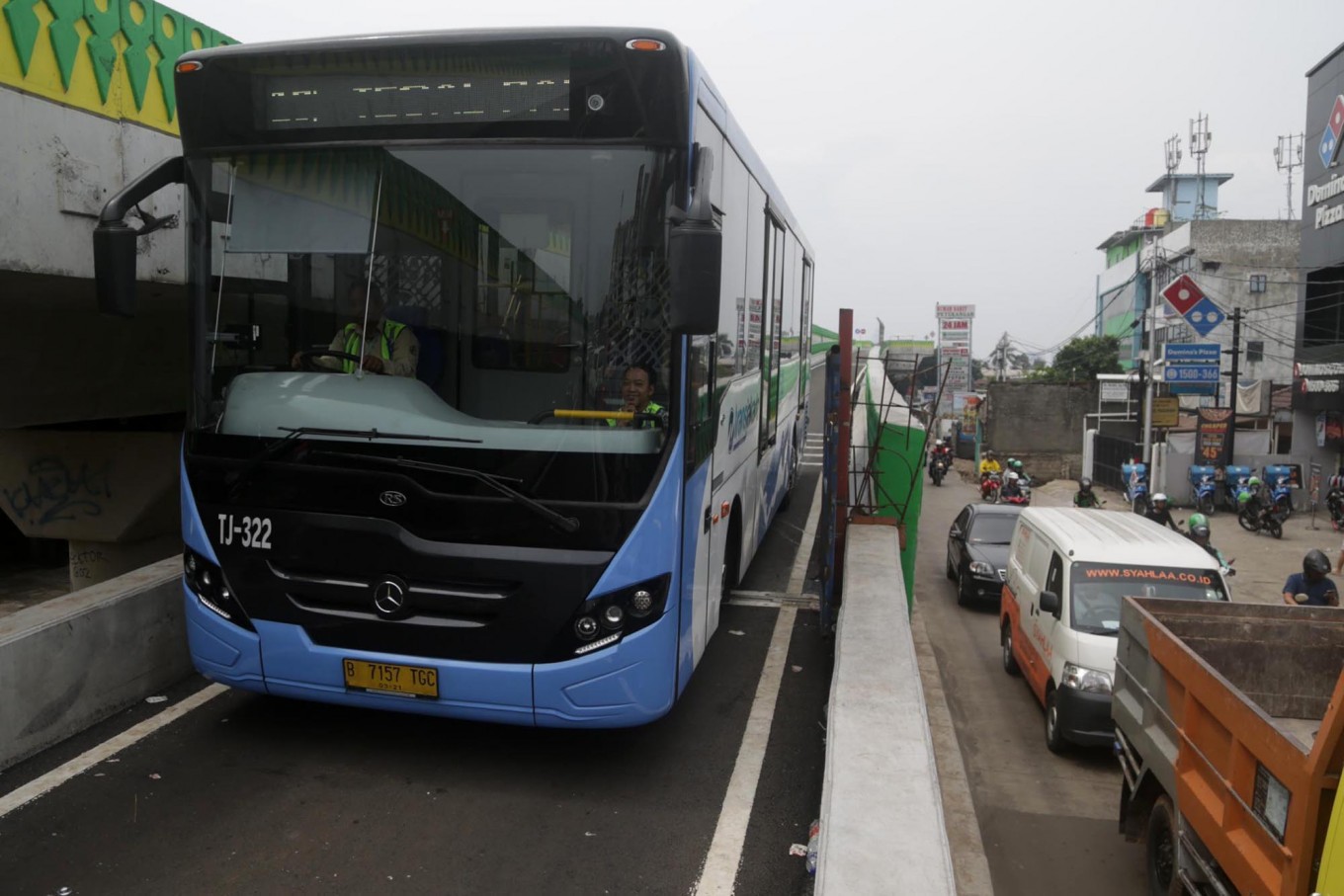Popular Reads
Top Results
Can't find what you're looking for?
View all search resultsPopular Reads
Top Results
Can't find what you're looking for?
View all search resultsExperts call for better public transportation integration in Greater Jakarta to lure more users
Indonesia Intelligent Transport System (IITS) advisor Elly Sinaga on Wednesday suggested the establishment of a public transportation council, consisting of transportation operators, associations and the Jakarta Transportation Agency, under the Greater Jakarta Transportation Body (BPTJ).
Change text size
Gift Premium Articles
to Anyone
T
he urban transportation system in Greater Jakarta should be better integrated in order to increase convenience for passengers, increase efficiency and meet the government’s target to lure more people to use public transportation, experts have stated.
Indonesia Intelligent Transport System (IITS) advisor Elly Sinaga on Wednesday suggested the establishment of a public transportation council, consisting of transportation operators, associations and the Jakarta Transportation Agency, under the Greater Jakarta Transportation Body (BPTJ).
“Through the public transportation council, the BPTJ could monitor the development and improve transportation integration,” she said during a webinar held by the BPTJ.
Greater Jakarta commuters listed impracticality as one of the concerns that had dissuaded them from using public transportation, besides lengthy travel duration and a lack of access, according to a survey by Statistics Indonesia (BPS) in 2019.
To further facilitate commuters, Elly suggested that the stakeholders should also integrate the public transportation fare, payment system and information, under a single roof.
“If we take a look at cities abroad such as London, Hong Kong and Seoul, they integrate their public transportation fare and payment system through a centralized clearinghouse. It can reduce the cost of trips for users,” she added.
Jakarta’s transportation master plan (RITJ) includes the government’s target to increase the share of public transportation use to 60 percent of all movements and expand its coverage area to 80 percent of all roads in Greater Jakarta by 2029.
Last year, the share of public transportation use had only reached 32 percent of all movements and covered only 67 percent of roads in Greater Jakarta, according to the BPTJ’s 2019 annual accountability report.
Jakarta’s rides per capita figure is 2.8 trips, meaning that 88 million trips are taken using public transport in the area each day, according to Elly.
“The huge population of Greater Jakarta is an opportunity for us to grow our public transportation system. We should align our supply of public transportation with the rising demand,” she said.
A separate survey conducted by the Bandung Institute of Technology (ITB) between December 2019 and March 2020 shows that the average one-way trip distance for Greater Jakarta residents is 25.15 kilometers with an average travel time of 1.1 hours.
“The top five issues that should be improved according to public transportation users are service frequency, compliance, capacity, comfort and reliability,” ITB School of Business and Management associate professor Yos Sunitiyoso said during the discussion.
However, Yos said the ITB survey showed that public transportation users were generally satisfied with the current state of public transportation, with the 5,000 surveyed respondents giving an average score of 8.2 out of 10 for overall satisfaction.
“Overall, people who have used public transportation are quite satisfied with it currently, even though they still gave suggestions for further improvements,” he said.
Jakarta has long struggled with traffic congestion, with private vehicles making up over 70 percent of vehicle use in the city, causing economic loss and environmental damage due to heavy pollution.
According to data from the National Development Planning Agency (Bappenas), traffic congestion in Greater Jakarta costs around Rp 65 trillion (US$4.6 billion) each year.










